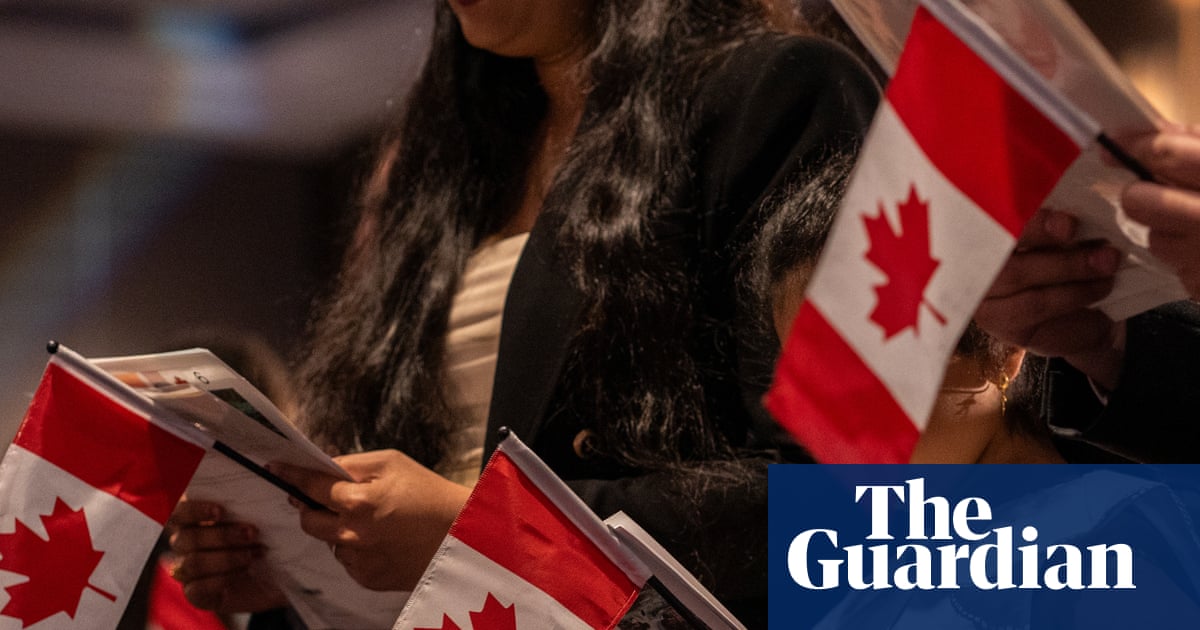‘Inherently cruel’: Canadian parents say citizenship bill erodes rights of children adopted abroad
Rule would require adopted children born abroad to prove ‘substantial connection’ to Canada to pass on citizenship Canadian parents of children adopted abroad say a proposed citizenship bill represents a “shocking and unconscionable” erosion of their children’s rights by the governing Liberals. The federal government is in the midst of overhauling the Citizenship Act so Canadians born abroad can pass citizenship to further generations born abroad. The bill would also restore or grant citizenship descendants who were excluded under older citizenship laws. But Kat Lanteigne, whose adopted son was born in Zambia, said a new requirement that a Canadian child born abroad demonstrate a “substantial connection” to Canada treats adopted children like immigrants. “It doesn’t treat our son like the Canadian citizen that he is,” she said. In 2009, changes were made to Canada’s citizenship laws that stopped the automatic transmission of citizenship by descent to foreign-born children if both of their Canadian parents were also born in a foreign country. The rule was struck down by an Ontario court in 2023 and Mark Carney’s Liberal government have proposed legislation that purports to fix elements of the law that were deemed to be unconstitutional. But Lanteigne said the proposed fix imposes a “connection test” that conflates children born outside Canada with children born outside Canada but adopted by Canadians within Canada. Government officials say as many as 2,000 children could be affected by the wording of the legislation. “We adopted our child from another country, but we actually adopted our child in the province of Ontario and in the country of Canada,” she said. “He doesn’t know any other nation except for his life in Canada.” Although elements of the bill have not yet been passed into law, Lanteigne says if her son were to move abroad and have children, he would, in theory, have to prove his “substantial connection” to Canada in order to pass citizenship on to any children. The connection test would not apply in similar circumstances to someone born in Canada. “Demanding an international adoptee, who has been adopted by Canadian families who live in Canada and granted citizenship by the Canadian government, go through a test that they really are Canadian is like asking them who their ‘real’ parents are. Not only is it deleterious and harmful to the international adoptee, it violates the international law that our country is signatory to,” she said. “It’s wholly unnecessary and inherently cruel.” The 1993 Hague convention on inter-country adoption says: “The [adopted] child shall enjoy in the receiving state, and in any other contracting state where the adoption is recognized, rights equivalent to those resulting from adoptions having this effect in each such state.” While all Canadian provinces and territories are in line with the convention, Lanteigne said Bill C-3 puts the federal government in breach. In early October, parliament’s standing committee on citizenship and immigration voted down an amendment from Liberal member Nathaniel Erskine-Smith that sought to fix the issue. Erskine-Smith told lawmakers “any inequality” between a child born in Canada and born abroad is “unconscionable”. The mood was at times tense at the committee after -Smith told experts he felt “absolutely misled” by their assessments of his amendments, neither of which passed. The first was withdrawn after Erskine-Smith was told the amendment logically “applied to no one” based on its wording and the second voted down by the committee despite the Liberals, which hold a minority of seats on the committee, all voting to support the amendment. Two conservative members on the committee raised concerns over the possibility that children adopted from abroad could be the victims of human trafficking. “Conflating child trafficking with the quality of our son’s citizenship status is dog-whistle politics which has no place in this discussion,” Lanteigne said in a letter addressed to the Tory lawmakers. “My Canadian son’s citizenship rights are not fodder for partisanship or xenophobic rhetoric.” In Canada, citizenship is granted to children from abroad at the end of the adoption process – a protracted bureaucratic process that takes years. Erskine-Smith and Lanteigne pointed to laws in the UK which treat children adopted internationally as if they had been born in the UK to a British citizen parent, meaning they can pass on British citizenship to any children they have. “Our child is a 16th-generation Acadian whose ancestors built Acadia, served at Vimy Ridge and Dieppe, and his charter rights must be protected by our legislators,” said Lanteigne. “The fact that he was born in another nation should have no bearing on the quality and consideration of his citizenship status.”



